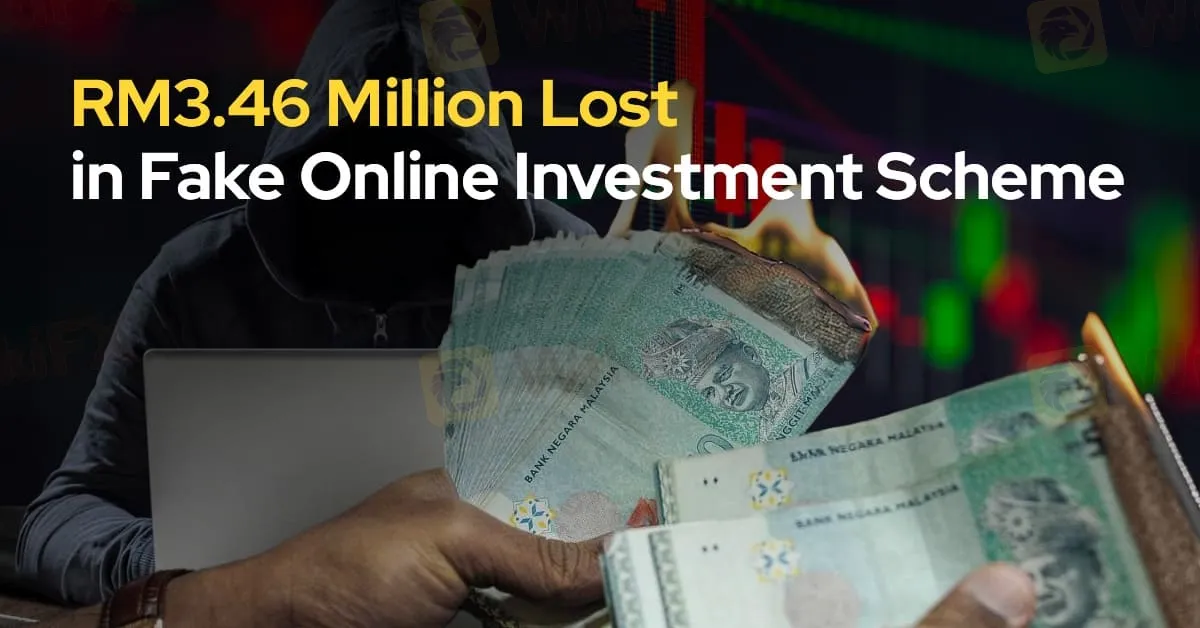RM3.46 Million Lost in Fake Online Investment Scheme
Abstract:A recent case in Selangor (Malaysia) highlights the growing threat of online investment scams, with one individual losing RM3.46 million to a fraudulent dimensional stock investment scheme. The scam was connected to a supposed QFII stock investment account called L-Trader Max.

A recent case in Selangor (Malaysia) highlights the growing threat of online investment scams, with one individual losing RM3.46 million to a fraudulent dimensional stock investment scheme. The scam was connected to a supposed QFII stock investment account called L-Trader Max.
Selangor police chief Hussein Omar Khan revealed that the victim had been lured into the investment after being convinced of its legitimacy. It all started with a man who persuaded the individual to sign a contract with a company known as “Dimensional.” The company was presented as being registered and operating out of Singapore, which gave it an air of credibility. Unfortunately, as is often the case with scams, the promises were too good to be true.
Once the contract was signed, the victim transferred funds, believing they were investing in a genuine stock market opportunity. However, the signed agreement turned out to be fake, and the company “Dimensional” was nothing more than a front for fraudulent activity. Upon realising something was wrong, the victim lodged a police report in the Serdang district, leading to the investigation.

The case is now being investigated under Section 420 of the Penal Code, which deals with cheating and fraud. This is just one of many scams that prey on unsuspecting individuals looking to make smart investments, and it's a stark reminder that caution is critical when it comes to online trading.
Hussein offered important advice for the public: always verify any investment platform before committing funds, especially when dealing with online traders or apps. Many scammers operate under the guise of legitimacy, making it crucial to check with the relevant authorities. He also pointed out that the National Scam Response Centre (997) is available for anyone needing help or clarification about suspicious schemes.

Read more

$360 Million International Pig-Butchering Scam Busted in Hong Kong
Hong Kong’s law enforcement has successfully dismantled a large-scale pig-butchering scam operation, which had amassed HK$360 million through fraudulent online schemes within the span of a year.

XM Launches US Election Mega Competition with $100,000 in Prizes
Join XM's US Election Mega Competition from Oct 31 to Nov 14, 2024, for a chance to win a share of $100,000 in cash prizes by trading election market volatility.

Interstellar Group - Featured Broker in WikiFX SkyLine Guide
In the rapidly evolving forex industry, WikiFX, as a leading global third-party information service platform, is dedicated to providing investors with the most reliable information services. To cater to the localized and personalized needs of investors in different regions, WikiFX has launched the SkyLine Guide, which first selected 25 outstanding brokers in Thailand. Additionally, WikiFX will release a series of related reports, with this article focusing on one of the featured brokers — Interstellar Group.

Hong Kong Police Crack Down on $360M Romance Crypto Scam
Hong Kong police arrested 27 in a HK$360M crypto romance scam, exposing global fraud. Operation Secret Word is a major step in fighting cryptocurrency crime.
WikiFX Broker
Latest News
Ex-Philippine Mayor Tied to $30M Crypto Scam Unveiled
Coinbase vs. SEC: The Push for Hidden Ethereum Files
FX Brokers Celebrated Mental Health Day
IFEXCAPITAL: Broker Review 2024
RM3.46 Million Lost in Fake Online Investment Scheme
Alleged Hong Kong Crypto Swindler Su Weiyi Faces Fraud Charges
Interactive Brokers Opens New Office in Dubai DIFC
WikiFX Review: Something You Need to Know about Hyperion Markets
Scalping vs. Swing Trading: Which Strategy Suits You?
Hong Kong Police Crack Down on $360M Romance Crypto Scam
Rate Calc
